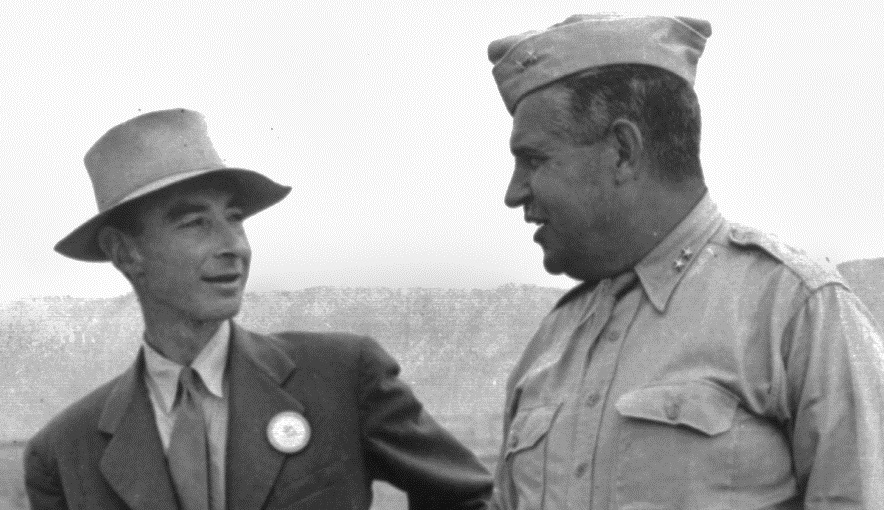Today the Atomic Heritage Foundation (AHF) is releasing never-before-heard audio interviews with top Manhattan Project military leaders and scientists, including General Leslie R. Groves and J. Robert Oppenheimer, on the “Voices of the Manhattan Project” website. Sixty-nine years after the Trinity test on July 16, 1945, the public can listen to the voices of those whose atomic achievements changed the course of world history, politics, science and society.
The interviews provide novel insight into the minds of the men and women who built the world’s first atomic bombs. General Groves explained, “I knew it was an impossible task, but my feeling was that while I very much disliked the assignment, as long as that was my assignment, we were going to make it go. This is going to succeed, it’s got to succeed, and we’re going to make it succeed.” Oppenheimer recalled, “I was more worried about the campaign in Africa and the campaign in Russia when I went to New Mexico than I was about the Germans making a bomb. I thought they might very well be winning the war.”
Over half a million people worked on the Manhattan Project at top-secret sites around the country. Today, only a small fraction of Manhattan Project veterans are still alive, and most of the key scientists passed away decades ago. Fortunately, AHF has been able to acquire the collections of three enterprising authors who conducted interviews with some of the luminaries as early as the 1960s.
In 1965, Stephane Groueff interviewed dozens of Manhattan Project principals for his book, “The Manhattan Project,” the first comprehensive history of the project written for the general public. In 1985, journalist S. L. Sanger spent his sabbatical from the Seattle Times travelling 11,000 miles to interview dozens of former Hanford workers. In the late 1980s, Richard Rhodes recorded in-depth interviews for his nuclear history works.
AHF is grateful to the Boston University Howard Gotlieb Archival Research Center, which houses the Groueff Collection, and to S. L. Sanger and Richard Rhodes for exclusive permission to include their collections of oral histories on AHF’s “Voices of the Manhattan Project” website.
Hearing the voices of the participants truly makes the history come alive. The twelve hours of recordings of General Groves are incredible. They range from his controversial selection of J. Robert Oppenheimer as head of the weapons laboratory to his vigil during the Hiroshima bombing mission.
Of the 180 interviews in these three collections, AHF has finished processing 30 which are now on the “Voices of the Manhattan Project” website. In addition to General Groves and an hour interview with his wife Grace, the public can listen to interviews with many notables including Edward Teller, Colonel Franklin Matthias, James B. Conant, Philip Abelson, Herbert Anderson, Leona Woods Marshall, and Nicholas Metropolis.
These oral histories should be a terrific resource for scholars, students, and members of the public interested in the history of the Manhattan Project and its legacy for today.
AHF is deeply grateful to the Crystal Trust, the Institute for Museum and Library Services, the City of Richland and other donors who have generously supported our project to make oral histories of the Manhattan Project available online. Stay tuned for many more to come.





